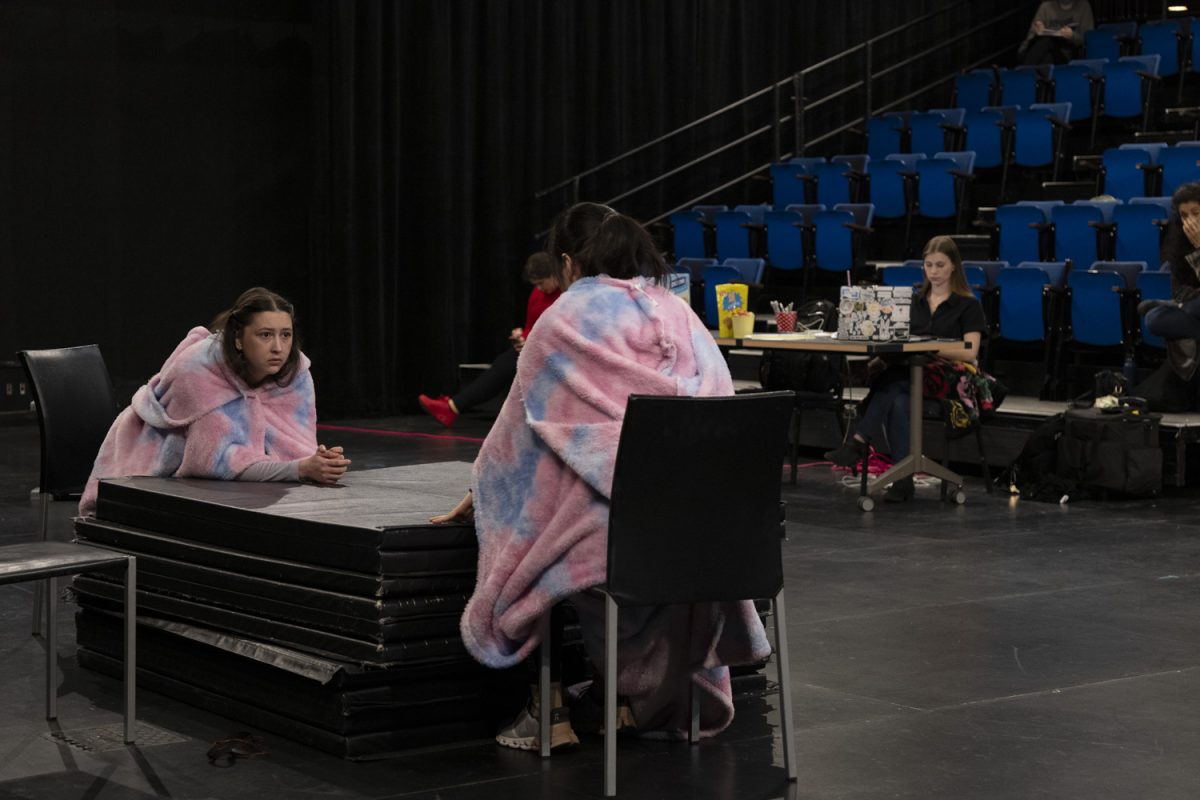The debate over breastfeeding takes on new dimensions in the Iowa New Play Festival’s opening production.
“It’s not that I’ve been wasting my time, but there’s so much in the world to know,” said UI student Saito, who is pursuing his M.F.A. in theater with a focus on playwriting.
He is not only aware of his education but also his place in both the developed and the developing worlds. This knowledge was the foundation for his new play, La Lechera, which will open today as part of the Iowa New Play Festival at 5:30 and 9 p.m. in the Theatre Building.
In La Lechera — which means “the dairymaid” in Spanish — protagonist Lubia has been away from her Central American village for more than 17 years. During that time, she has lived near Central Park as a wet nurse for Conroy. His attachment to Lubia’s lactate is not a case of a cross-cultural Oedipal complex; her breast milk is the most delicious in existence. Conroy is not the only person who desires Lubia’s milk — his father, Laszlo, conspires to market the drink for mass consumption. Not surprisingly, Conroy’s mother, Madeline is not a fan of Lubia’s extraordinary gift.
“I’ve been blessed that so many excellent characters came knocking at my door,” Saito said.
Such a striking plot line would need inspiration from distinct experiences, and Saito has many.
“The play is a marriage of three sources, all related to Guatemala,” he said.
Saito worked throughout Central and South America, teaching poetry and collaborating with theater companies, including a one-year stint in Guatemala, which serves as the first source of La Lechera’s inspiration. Saito also drew from memories of a wealthy childhood friend who had a Guatemalan nanny and a scene from a play he wrote roughly six years ago that featured a woman who was genetically bred to constantly lactate.
Saito’s travels south of the United States have given him a larger lens through which to view the world, and those ideas are brightly reflected in his work.
Saito compared Conroy to the United States because “he always gets his way” and said the play has much more going on than a quest for the breast.
“La Lechera is about us taking more than we need and what belongs to other people,” he said.
“Every human being has an indigenous soul, but we have a modern, industrial, fascist mind that’s at war against the soul,” he said.
Part of the reason he admires countries such as Guatemala, Peru, and Bolivia, he said, is because of their abilities to incorporate indigenous cultures into their national identities. This is something he said is conspicuously missing from his life, as an American of Japanese heritage who speaks no Japanese.
Though the playwright said one of his goals is to help people get in touch with their indigenous souls, he hopes the audience will react in all kinds of ways.
“Some people might find this play offensive,” Saito said. “But one of the things I’ve learned very strongly this year is that I have to make my work engaging for the audience. That doesn’t mean it’s easy, happy, or fun, but it should take you places.”






